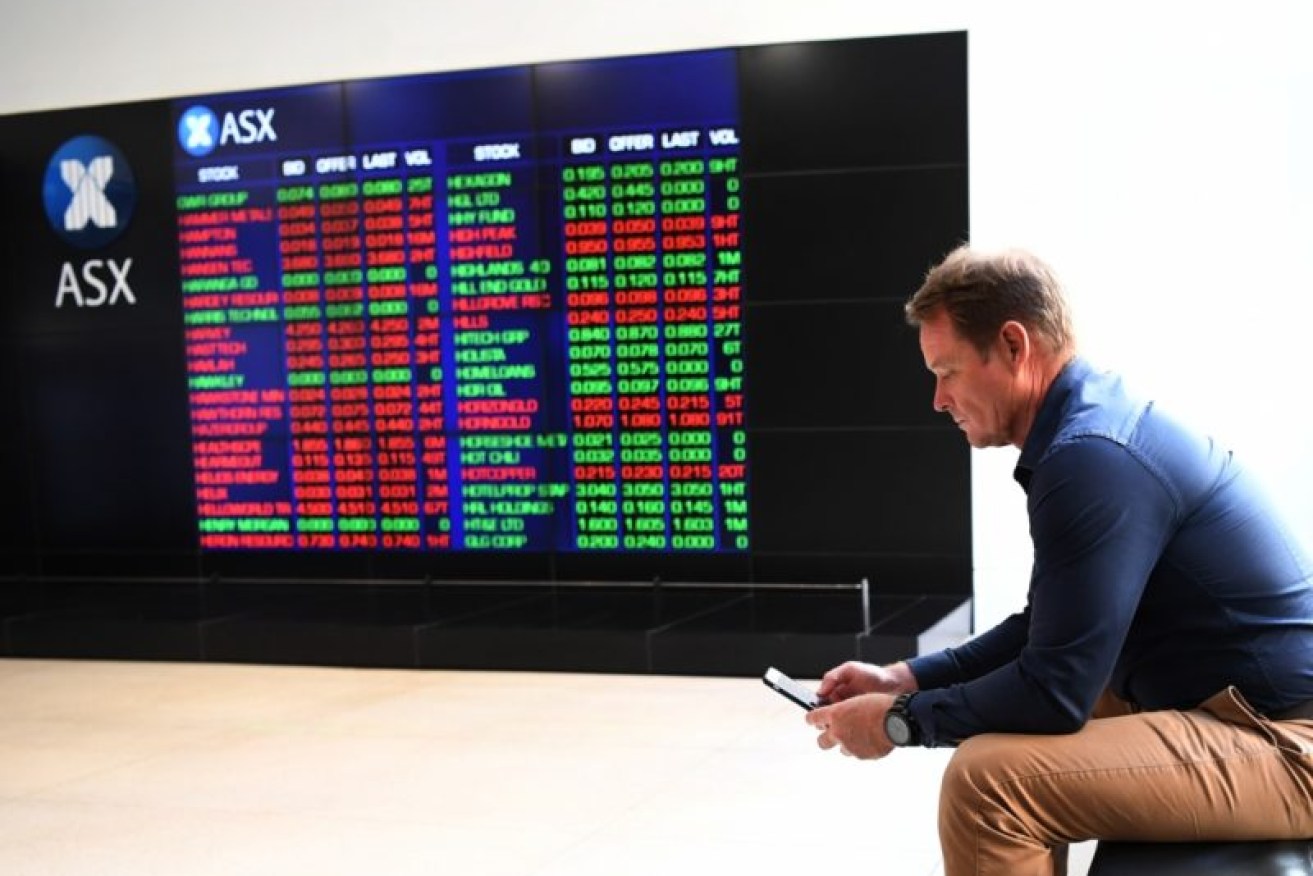Australian shares drop again, losing $50 billion since Friday morning


Shares have lost $50 billion in two trading days. Photo:AAP
Australian shares lost around $13 billion in value on Monday when the market tumbled over fears of a trade war sparked by US President Donald Trump.
By mid afternoon the All Ordinaries Index was down 30 points, or 0.5 per cent, to 5900 points, shedding $10 billion in value hard on the heels of Friday’s fall which cost investors almost $40 billion. At the close it was down 27.6 points.
The hardest hit sectors were the financials, down 1.7 per cent along with consumer staples, down 0.89 per cent, and consumer staples, down 0.79 per cent. The Commonwealth Bank was down 1.3 per cent to $71.86, the ANZ lost 0.9 per cent to $27.45 and BHP was down 0.7 per cent to $28.57.

The All Ordinaries Index has fallen over the last five days. Source: ASX
In the consumer area Woolworths lost 0.79 per cent to $26.33 while Harvey Norman lost 0.69 per cent to $3.61.
General commentary blamed the falls on trade war fears sparked by Mr Trump’s $US60 ($A77) billion tariff hit to China.
The Aussie market’s move followed on from Friday night’s US market dive which brought losses on the broad S&P 500 index to -4.5 per cent, or almost 200 points in two days.
But interestingly Australia’s resource sector overall, which would be hit if Chinese and international growth slowed, lost only 0.26 per cent.
Roger Montgomery, principal with Montgomery Investment Management, said worries over the trade war were masking another factor underlying share weakness.
“Concerns on trade would have been brushed off if they happened last year or the year before,” Mr Montgomery said.
“There are underlying concerns about funding costs in international market. LIBOR [the London interbank overnight rate] was at 2.7 per cent last week; that’s the highest its been since 2008.”
LIBOR measures the interest rate banks charge to lend to each other and when it is on the rise the funding costs for companies inevitably rise.
“Another measure, the LIBOR Over Market Index, is at levels not seen since the GFC,” Mr Montgomery said.
Put in plain English that all means the market is more concerned about rising interest rates that will hit the corporate sector and in turn hit company profits, rather than the effects on trade of the Trump tariffs.
There are also dangerous signs of overconfidence in equity markets as investors ignore the interest rate threats.
“Recently we saw $US3.3 billion invested into the biggest ETF [exchange traded fund] that targets the NASDAQ [where tech stocks are listed]. That’s the largest inflow since the height of the dot.com boom, ” Mr Montgomery said.
We also saw $34 billion into ETF’s all up, the biggest weekly inflow ever.
“That means it’s the maximum trust level in equities at the very time bond rates are rising.”
Bond interest rate rises usually correspond with stock market falls as investors are attracted out of shares into higher yielding bonds.








